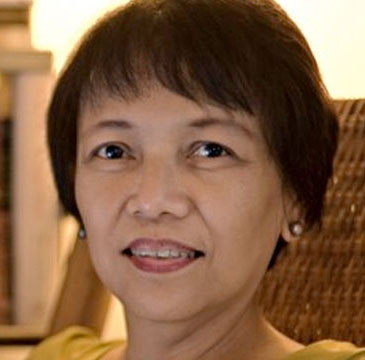SUMMARY
This is AI generated summarization, which may have errors. For context, always refer to the full article.
 At the ruling coalition’s miting de avance, the air was triumphant, the senatorial candidates engaged in a love-fest with President Aquino, praising him for his leadership and reforms, and thanking him for the dogged support during the campaign.
At the ruling coalition’s miting de avance, the air was triumphant, the senatorial candidates engaged in a love-fest with President Aquino, praising him for his leadership and reforms, and thanking him for the dogged support during the campaign.
Many of the candidates referred to their campaign manager, Frank Drilon, as the incoming Senate president while the “big man,” as the emcee Leah Navarro called him, waved and smiled.
When President Aquino walked with Interior Secretary Mar Roxas to the stage, in the final part of the rally, both were wearing identical yellow shirts and animated smiles. Roxas, who is president (on leave) of the Liberal Party, roared a lusty greeting to the Quezon City crowd–with verve not seen in years–and introduced the president.
These short scenes last Friday, May 10, at the Amoranto Stadium looked like preparations for 2016, when Aquino steps down and endorses a successor in what will be another momentous presidential election year. This mid-term election, after all, is a referendum on the Aquino administration.
In the next 3 years, it is expected that the Senate will be dominated by allies and led by LP stalwart Drilon. Predictably, as history has shown, majority in the House of Representatives will belong to the ruling coalition.
With a victory in the mid-term elections, Aquino has repeatedly said that he will be able to continue his reforms and make the country’s economic growth “inclusive.”
So here’s what some of his advisers would like to happen after the elections: the president will do very well in his last 3 years in office, he will remain wildly popular, and, as such, his endorsement will count for much in 2016. They are taking a leaf from the Brazil experience wherein Luiz Inacio Lula da Silva anointed his chief of staff Dilma Rousseff, a relatively unknown figure, to run for president and won, largely because of Lula’s success.
Coalition politics
But what these advisers are downplaying is the nature of Philippine elections: ours is not based on strong political parties and platforms. Lula came from the Workers Party with a very well-defined program. Aquino is from the Liberal Party which entered into a coalition with other parties mainly to win the elections. Of the 12 Team Pnoy candidates, only 3 are party mates of the president.
In other countries, political parties enter into coalitions only after elections to push for certain programs. Here, we form coalitions to assure victory in the polls–and we’re not even sure that they will hold till the next elections.
What Bam Aquino said about the 12 candidates’ selling point during the miting de avance–“We are all handpicked by the president”–says a lot about what’s wrong with our kind of coalition politics. Did the LP and other political parties hold conventions or caucuses to choose their candidates? Each candidate, as we saw, was chosen on the basis of popularity and surname. Nicole Curato, a sociology professor, coined a smart catch phrase for our Senate: it’s the “old surnames club.”
Similarly, political scientist Amado Mendoza describes our elections as “candidate-centered” and argued convincingly that “candidates are the brands and political parties are just extraneous wrappings that can be changed in the next election.”
A Team Pnoy sympathizer put it well: “Once the dust settles from the elections, Pnoy will have a strong mandate to pursue his reform agenda–with solid support from both chambers of Congress. What is unclear though is whether his coalition may be capable of staying together beyond the president’s term to ensure and sustain continuity.” This is a big question on many people’s minds.
No real opposition
Some say that the 2013 election seems to have degenerated further into personality politics, where party lines have blurred or disappeared. The context of this year’s mid-term polls explains this phenomenon. With a popular president untainted by scandals, “there is not much differentiation between the two coalitions, Team Pnoy and UNA” unlike in the 2007 elections when there were 2 “distinct groups,” says Ronnie Holmes of Pulse Asia.
He continues: “The lack of differentiation may be rooted in the fact that the political and economic environment is relatively stable, with the 2 top officials (Aquino and Binay) enjoying the same significant majority approval and trust ratings.”
In 2007, President Arroyo’s Team Unity was challenged by the Genuine Opposition led by then Mayor Jejomar Binay. Arroyo was scathed by corruption scandals and her popularity was fast declining.
This time around, Aquino enjoys high popularity rating thus the opposition coalition has less fertile ground for attacks. UNA couldn’t quite define itself. It calls itself the “loyal opposition” or the “constructive opposition,” apparently fearful of a backlash if it goes all out against the president.
The political environment has put UNA at a disadvantage. Ernesto Maceda, who is running for senator under UNA and who has witnessed 17 elections, told me that the absence of clear party lines in this election is palpable.
But all is not lost for UNA. While the Binay-led coalition may win only a few Senate seats, the big winner is the vice president. The surveys have consistently shown that Nancy Binay is among the top 12, indicating that her surname spells magic. This is the best news for UNA, if it stays intact till 2016. It has a ready candidate for president.
Sure, the 2013 vote is a positive verdict on Aquino. But 2016 will be another story. – Rappler.com
Add a comment
How does this make you feel?
There are no comments yet. Add your comment to start the conversation.